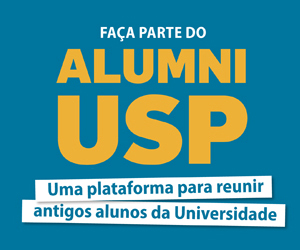CANUTO, Sylvio Roberto Accioly
Electronic structure of molecules, bio-molecules and finite clusters. Computer simulation and properties of molecular liquids. Effects of solvents on properties and spectroscopy. Intermolecular forces including van der Waals and hydrogen bonds. Application of Monte Carlo simulation, molecular dynamics and many-body quantum theories. Electric and magnetic properties of molecules and electronic structure of supercritical fluids. Development of algorithm and methodologies for studying the structure, properties and spectroscopy of molecular liquids.
Specialized in Many-Body Theory, Computer Simulation and Molecular Modeling, with emphasis on the studies of solvent effects in spectroscopy and reactivity of molecules and bio-molecules in liquid environment, particularly in water. Also interested in electric and magnetic properties of molecules and supercritical systems.
CATICHA, Nestor
Theory of information and interaction of information processing agents. Development and analysis of learning algorithms. Performance limits. With applications to: 1. Modeling of opinion dynamics in societies; 2. Evolutionary dynamics; 3. Modeling of biological neural networks, and peripheral sensory systems; 4. Data processing in applications to functional magnetic resonance imaging (fMRI).
DEPPMAN, Airton
The main line of research focuses on the area of Nuclear Physics at intermediate and high energies (40 MeV to 15 TeV).
These activities are developed in Brazil, in collaboration with researchers from Rio de Janeiro-RJ, and Ilhéus-Ba, and in Switzerland through the ALICE collaboration at the Large Hadron Collider (LHC).
The main tools used in both lines of research are computer codes that use the Monte Carlo method to simulate physical processes.
In Brazil, we develop the CRISP code, which simulates nuclear reactions induced by photons (real or virtual) or baryons (protons or neutrons) in the energy range mentioned above. Here the basics of Nuclear Physics and Particle Physics are studied, and applications in Reactor Physics and Medical Physics are explored.
In the LHC, we collaborate in the development of methods for analysis and identification of particles and with data analysis. Also we study models to explain the observed phenomena. The main objective is to study the plasma of quarks and gluons, which is formed in ultra-relativistic heavy ion collisions.
Besides these two main lines, we also develop other studies where Nuclear Physics or the Monte Carlo method can be applied. Currently we are studying the behavior of RNA molecules that evolve under different conditions, observing the flow of information into the system during this evolutionary process.
JARDIM, Renato Figueiredo
Interests – Experimental Condensed Matter Physics
1) Synthesis of High TC oxides: study of their structural, magnetic, and transport properties;
2) Studies of inter and intragranular properties of High TC oxides for practical applications;
3) Metal-insulator and superconducting-insulator transitions in Cu and Ni based oxides;
4) Synthesis of magnetic nanoparticles and their general physical properties;
5) Design of supported catalysts on novel nanostructured magnetic materials and their applications in fine chemicals;
6) Novel magnetic and superconducting oxides with unconventional properties.
PRADO, Carmen P. C.
(a) Application of numerical and analytical techniques – developed in the studies of nonlinear dynamical systems, chaos, and statistical mechanics – to the study of the dynamics of earthquakes, problems of biological interest (tumor growth and ecology), sociophysics (problems of sociological interest), and analysis of time series.
(b) statistical mechanics of complex networks.
TOMÉ, Tânia
Stochastic mechanics. Applications:
(c) Stochastic and spatially structured models for describing systems of biological interest (dynamics of biological populations).
(b) Generation of entropy in Markov processes.









